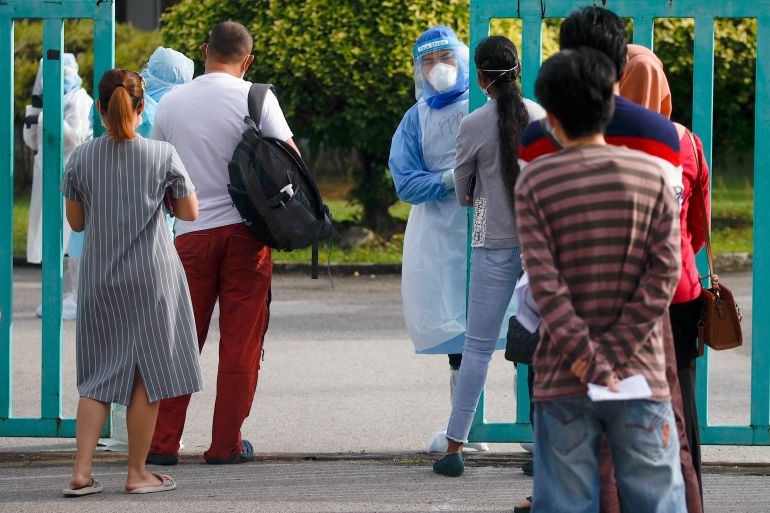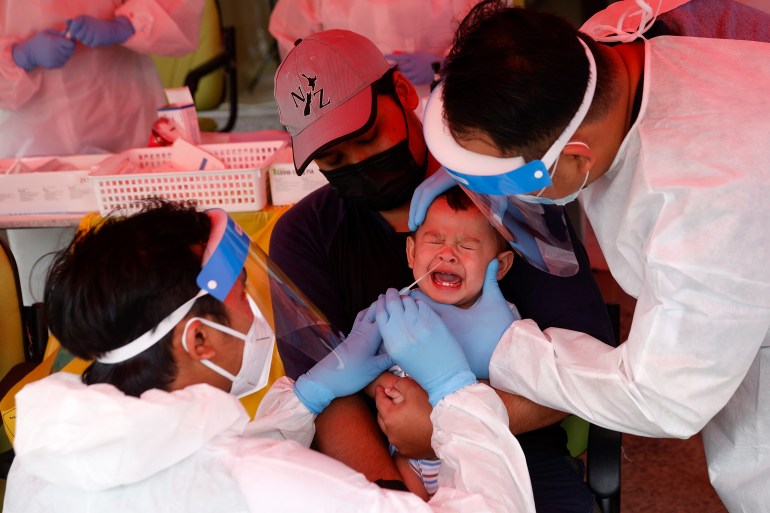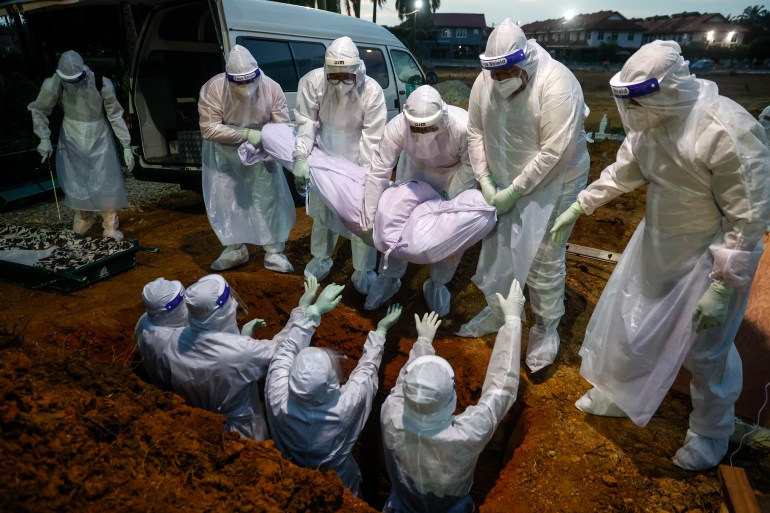Malaysia to extend COVID vaccination to all foreigners in country
Ministers have given approval to giving jab to millions of non-Malaysians as it battles surging cases.

Malaysia says it will include all foreigners who live in the country in its national vaccination programme as it prepares to roll out its first jabs at the end of this month.
“(The) Cabinet has decided that foreign citizens residing in Malaysia will receive COVID-19 vaccines free under the National Immunisation Programme,” Khairy Jamaluddin, the Southeast Asian country’s Minister of Science, Technology and Innovation, who is leading the vaccination drive, said on Twitter on Thursday. “This will include diplomats, expatriates, students, foreign spouses and children, foreign workers & UNHCR [UN refugee agency] card holders.”
Keep reading
list of 4 itemsAt COVID-19 ‘breaking point’, Malaysia suspends parliament
Singapore suspends ‘travel bubble’ with Malaysia, South Korea
Malaysia steps up COVID vaccine plans with AstraZeneca deal
A statement from the country’s vaccine task force said that while Malaysians were the government’s priority it was necessary to ensure non-citizens were also vaccinated in order to achieve sufficient coverage to curb the spread of the virus.
It noted too that most clusters of the disease were now occurring in work places including offices, construction sites and factories.
“A safe environment free from COVID-19 can only be achieved when as many Malaysian residents as possible are immunised,” the government committee on vaccine supply said in a statement.
“During a pandemic, providing vaccinations is a humanitarian move.”

Millions of migrants, many of them undocumented, live in Malaysia and often work in the kind of low-wage jobs few Malaysians want to do. Despite promises that migrants would not be at risk during last year’s lockdown, thousands of foreigners were detained in immigration raids and many said they were fearful of going out – even to be tested – in case they were detained.
‘Part of the community’
Khairy said the cabinet had agreed “in principle” that the vaccine would also be given free of charge to undocumented foreigners.
“We will be discussing further on how this can be implemented,” he said. “We will be reaching out to state governments, foreign embassies, NGOs to assist.”
The committee noted that foreigners were “part of the community” and contribute to the country’s economy and that other governments were vaccinating Malaysians who were residents in their countries.
Malaysia is due to receive its first shipments of the Pfizer-BioNTech vaccine in days and has also put in orders for vaccines including Russia’s Sputnik V, Sinovac and AstraZeneca, which it will also have access to under the WHO’s COVAX facility.
Healthcare workers are expected to be first to receive the vaccine but the full schedule has not been released.
After successfully suppressing the virus for most of last year, Malaysia has been battling a surge in coronavirus cases that began in September and was accelerated by a state election.
A partial lockdown was introduced in October and gradually relaxed even as cases continued to rise. People were also allowed to travel across the country for the year-end holidays, before a surge in cases triggered another lockdown in early January that closed shops, restaurants and bars and banned travel.

The government also imposed a state of emergency suspending parliament until August.
On Wednesday, the country reported more than 3,000 new cases of the disease and 14 deaths. In total, there have been more than 250,000 cases of the disease and 923 deaths.